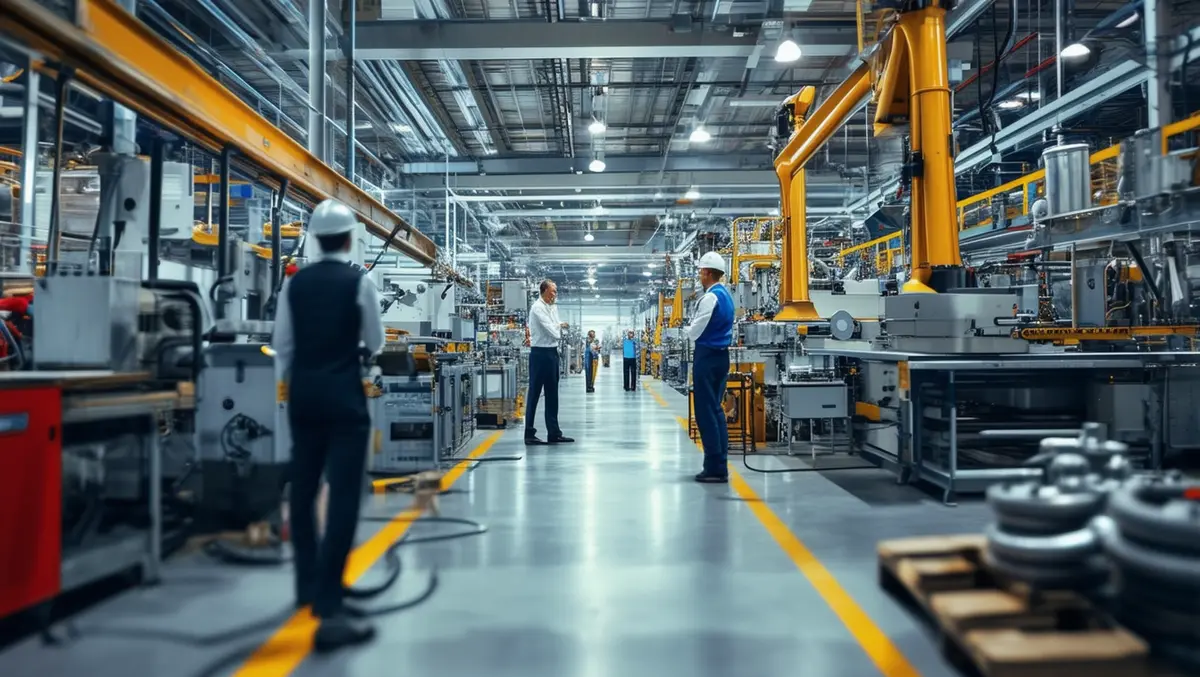
Morale gap in manufacturing: epicor report reveals insights
A recent report released by Epicor, titled "Future of Work in Manufacturing," has revealed a noticeable disparity in workplace morale between manufacturing managers and frontline workers. In 2024, 57% of managers rated their morale as high, contrasted by only 45% of workers, suggesting a disconnect in understanding and addressing employee engagement within the industry.
The report underscores the critical nature of bridging this morale gap, particularly given the projected shortage of 3.8 million manufacturing employees. This gap, if unaddressed, could present significant challenges for leaders as they work to meet both current challenges and future demands.
Additionally, the study highlighted a discrepancy in the prioritisation of upskilling efforts. While 91% of managers recognised upskilling as a priority, only 70% of workers shared this sentiment. This finding indicates a need for improved communication and implementation of upskilling programmes within the industry.
Epicor's survey included over 1,400 manufacturing leaders and 1,200 manufacturing workers from across the globe. The aim was to uncover key trends and strategies that are expected to shape the future of the industry. The insights gathered are intended to guide industry leaders, including C-suite executives, operations managers, IT leaders, and HR professionals in effectively scaling their manufacturing operations.
Among the key findings was a technological gap perception. 52% of managers considered their workplace very modern in 2024, yet only 39% of workers concurred. This disparity suggests a misalignment in perceptions of technological advancement between the two groups.
Regarding sustainability priorities, only about half of the companies were found to prioritise sustainability. While 61% of managers viewed it as crucial, only 45% of workers felt the same way. This points to the need for stronger and more visible sustainability initiatives within the sector.
Supply chain resilience remains a significant concern, with 75% of managers recognising its critical importance. However, issues such as cost, regulatory hurdles, and technological limitations continue to pose substantial obstacles.
The impact of automation on the workforce was another area of interest. A growing awareness of automation's role was observed, with 73% of managers and 53% of workers expecting job changes due to automation. Notably, immediate concerns among workers about automation seem to be decreasing.
Turnover trends revealed varying experiences between workers and managers. Worker-reported turnover saw a 6% decline in 2024, whereas manager-reported turnover increased by 25%. This divergence highlights differing perspectives on workforce stability within the industry.
The report offers strategic recommendations for manufacturing leaders, emphasising the importance of enhancing employee engagement and morale through improved communication and recognition programmes. It also suggests accelerating technological modernisation to remain competitive, implementing robust upskilling programmes to prepare workers for future demands, and prioritising sustainability to meet growing Environmental, Social, and Governance (ESG) requirements.
"Manufacturers are navigating an era of significant change and challenge," commented Kerrie Jordan, Group Vice President of Product Management at Epicor. "Our latest report provides actionable insights that can help organisations align their people, processes, and technology to fine-tune their operations. By gathering and analysing perspectives from both workers and leaders across the globe, we've gained robust insights that guide us in crafting strategies to enhance operational efficiency and embrace future opportunities."
The findings and recommendations are available in detail in the full "Future of Work in Manufacturing" report.


